DOG TRAINING OFFERED IN-PERSON AND ONLINEOur dog training services are delivered in almost any format that meets your needs. We have GROUP CLASSES at our indoor and outdoor facilities on our farm, ONLINE LIVE STREAMING classes, and SELF-PACED VIDEO-BASED training through our Online Dog Training Course. Our PRIVATE TRAININGS can be done in-home, outside, in public dog-friendly locations, at our facility on our farm, online via phone or video conferencing and through email. |
Some people already know what breed they want with their next dog. They have a chosen breed already and are sticking with it. Other people choose their next dog based on an impulse, a dog's look, or having met another dog of that breed that they liked. If you are not sure what breed you want next, we hope that you will put some research in before choosing your next dog. If you want to ensure the best fit for your family and lifestyle, a bit of planning in advance can go a long way toward a successful match.
There are lots of “choosing a dog breed” quizzes online. Some are certainly better than others. Just for fun, I took a few of them just before writing this. One came up with no matches to my answers; one came up with only one suggestion and no backup options. And a few others gave me several options that matched my criteria by certain percentages (96% or 85%, etc.) so I had some options to choose from and further research. In actuality, I have already done my research and know what breed I am bringing home next. But not one of these quizzes brought up my breed of choice as a top choice. Only one of the quizzes listed my breed of choice as a potential alternative option but it was not in the top ten recommendations. My point is this: if you're not sure what you want, take some quizzes to see if they give you some ideas to further research. But don't immediately assume that whatever answer they give you would actually be the best choice for you.
Here are some things to consider that can help you narrow down your breed choices:
- What size dog do you want? Toy, miniature, small, medium, large, giant? Do you want a dog you can easily pick up and carry? Do you really love BIG dogs? Take into consideration how much you would need to feed, the ability to transport, life spans, costs, and other considerations that might be different based on the size of the breed you choose. For example, smaller dogs tend to have longer life spans. Giant breeds tend to have the shortest life spans. Toy breeds are far less expensive to feed than large or giant breeds. Is your vehicle large enough to transport a large dog? Think about how size fits into your lifestyle and fits your preferences.
- What type of and how much grooming/maintenance do you want to do? Does the amount of shedding matter to you? Do you prefer a non-shedding dog? A dog who does not shed but needs to go to a groomer regularly? A dog with short hair and minimal shedding? A dog with longer hair who needs regular brushing and grooming? Think honestly about how much time, effort and money you want to put into this. And consider your lifestyle. For example, our property works well for energetic breeds. However, we also have a lot of foxtails on our property, so we prefer breeds with short coats that make it harder for foxtails and stickers to attach to.
- What type of exercise will you realistically be able and willing to give your dog DAILY? If you love hiking on the weekends, but the dog won't get walked at all during the week, then a high energy dog will not be a good choice. Can you hire a dog walker or mix in some day care during the week? Be honest about the energy level you want and can handle. Dogs with high energy levels who do not get enough exercise tend to be big troublemakers. Do you want a couch potato? A dog who can handle walks when you feel like it but doesn't need long walks every single day?
- Can you handle and afford significant health issues? Look seriously at what common health issues come with each breed. Some are prone to more serious issues than others. Keep that in mind when planning not just how much effort you want to put in, but how much you can afford when it comes to medications, surgeries, physical therapy, etc. Not every dog of that breed will experience the issues common to that breed, but it's something you need to be prepared to handle.
- How much time do you plan or want to spend on training? This should be factored in with every single dog, but some will certainly need a lot more than others. High energy dogs take a lot of physical exercise, but SMART dogs take a lot of mental stimulation. And a high energy dog who is also smart, takes BOTH! Not every household should live with a really smart dog.
- Do you want a dog for specific activities? Agility, nosework, hiking, flyball, long walks, snuggling on the couch, parkour, stand-up paddling, going to work with you, attending kids' soccer games, traveling, etc. Think carefully about what you want the dog to be able to do, and then think carefully about whether the breed you are looking at is suited to those activities.
- Do you have kids? Are you around kids a lot? Do you plan to have kids? Does the breed you are considering LOVE kids? If you have young kids at home and lots of kids who visit or you go places with lots of kids, then you need a dog who does not just tolerate kids. You need a dog who absolutely LOVES kids.
- Do you have a dog or multiple dogs already at home? Is the breed you are considering likely to do well with the breed(s) you currently have? Typically, dogs of the same breed or similar groups (such as herding breeds) will tend to get along better because they have similar play styles, etc. Dogs that vary quite a bit might get along well, but consider that dogs with widely different play styles might have trouble playing well together. Dogs who like to snuggle with everyone might irritate the dog who prefers a good bit of personal space. Consider how the dogs are likely to get along and determine if that's something you will be able to work with if they do not mesh well naturally.
- Do you prefer a more independent or a more dependent dog? Do you prefer a more independent dog who prefers some personal space? Do you prefer a dog who wants to be with you all the time? Do you prefer a dog who is a big snuggler and wants to sleep on your bed and snuggle in your lap? Do you prefer a dog who likes being around you but not touching you? How much time can you reasonably spend with your dog? Are you gone a lot or home a lot? How much time will this dog be with you or left home alone? Consider the breed and if that breed meets what you prefer. Typically, more independent breeds prefer their own space. And the dogs who tend to run hot prefer space as well because they get too warm snuggling with someone. Be realistic about your lifestyle. Does a dog fit that lifestyle? Does the breed you are considering fit that lifestyle? Keep in mind that most breeds do NOT want to spend a lot of time alone. We love dogs because they tend to be pretty social and want to be around others.
- Remember that every dog is an individual. They do not all read the “job description” for their breed. So the breed tendencies will give you a good idea of what to expect, but be prepared that some dogs will not fit that description. Vizslas are bird dogs. They are pointers who are bred to point out birds for hunters. But our Vizsla, Romeo, had ZERO interest in birds. He actually was very good at pointing out bunnies and squirrels and other rodents. But as soon as he realized it was a bird in the bushes or trees, he lost interest. Fortunately, we did not care about that!
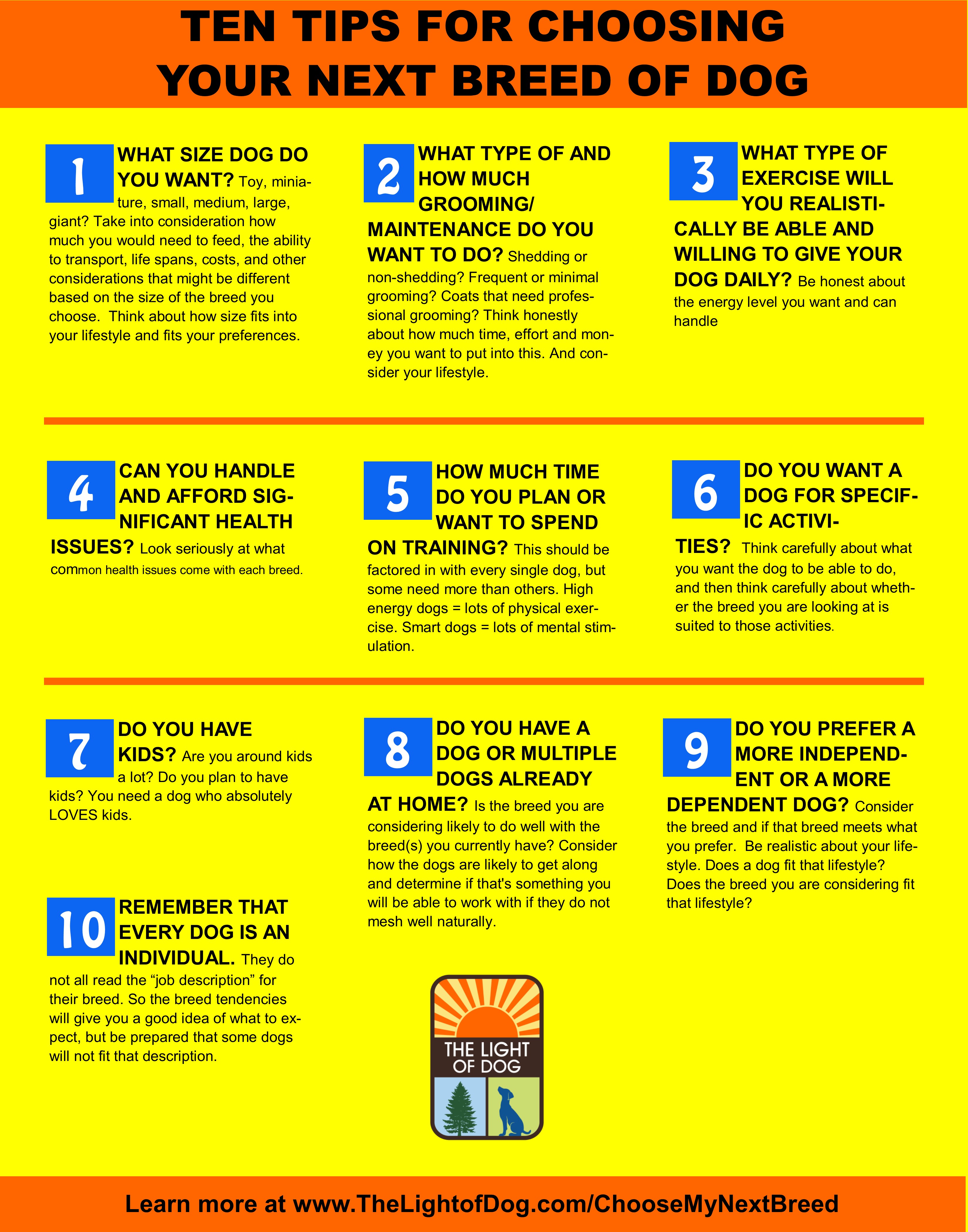
Once you've narrowed down to a breed or two or three you are interested in, find some breeders to interview. Find some folks who work in rescue for that breed and talk with them. Try to find some families similar to yours who already have that breed of dog and talk to them. If any of them tell you that this breed is the perfect dog and you definitely need to get one, then talk to some others! There is no dog that is perfect. And there is no breed that is perfect for everyone! Find out what the pros and cons are for the breed – they ALL have pros and cons. Then decide if the pros match up with your “must haves” and the cons are issues you are willing and able to deal with. Don't be in a rush! Take your time and make sure you are making the best decision for you, your family, AND the dog.
Keep in mind we are talking about choosing a breed, but there are plenty of dogs in need of homes who are a mix of breeds. If you choose a mixed breed, still consider what possible breed mixes might be in there and see if those traits seem like a good match. You don't need to choose a purebred dog, but having some idea about the dog's characteristics will still help you to make the best possible choice.
Additional Resources
Our goal is to positively impact the lives of as many dogs and their families as we can, in part through our extensive library of video, infographics and text articles. |


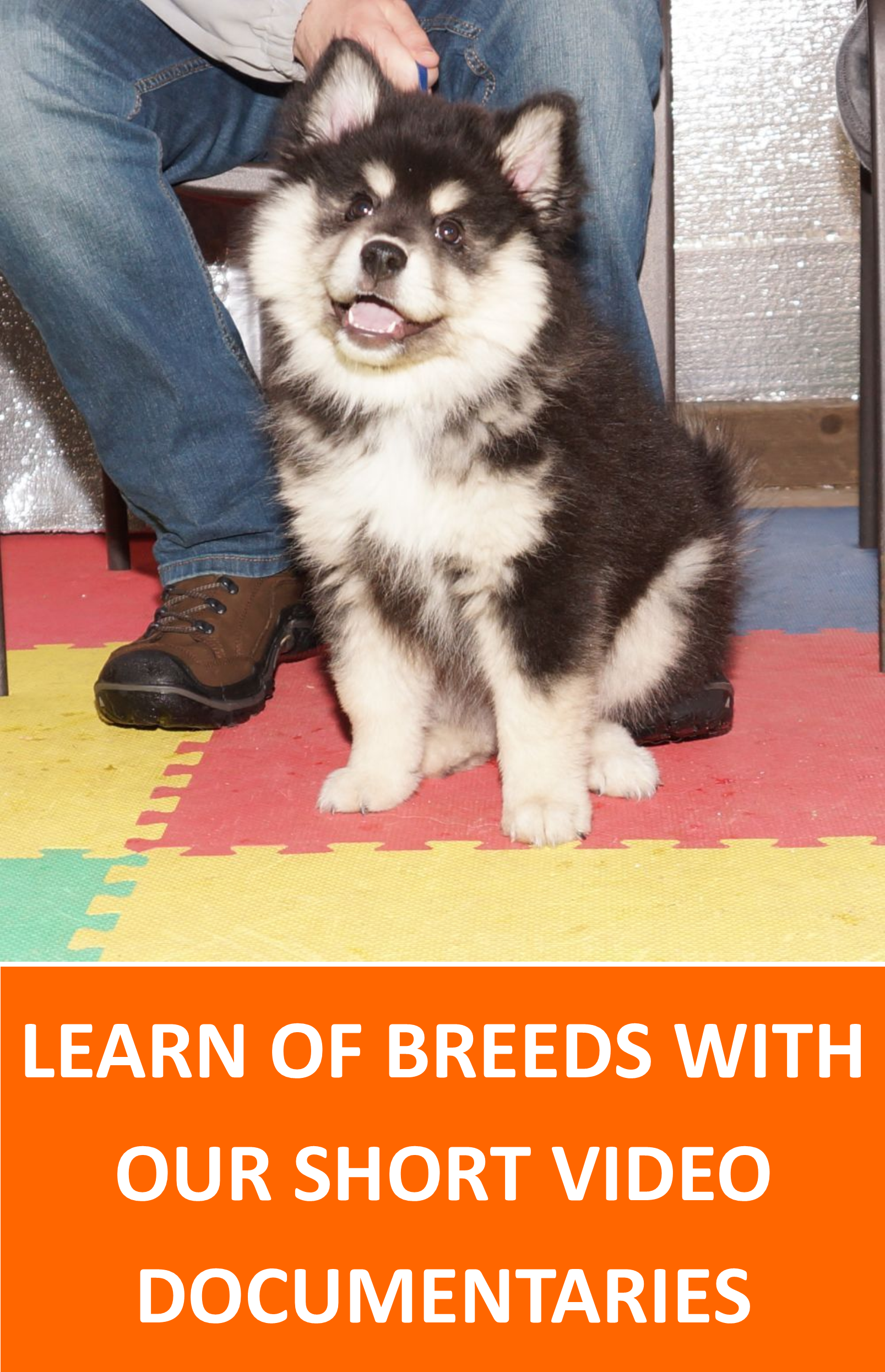
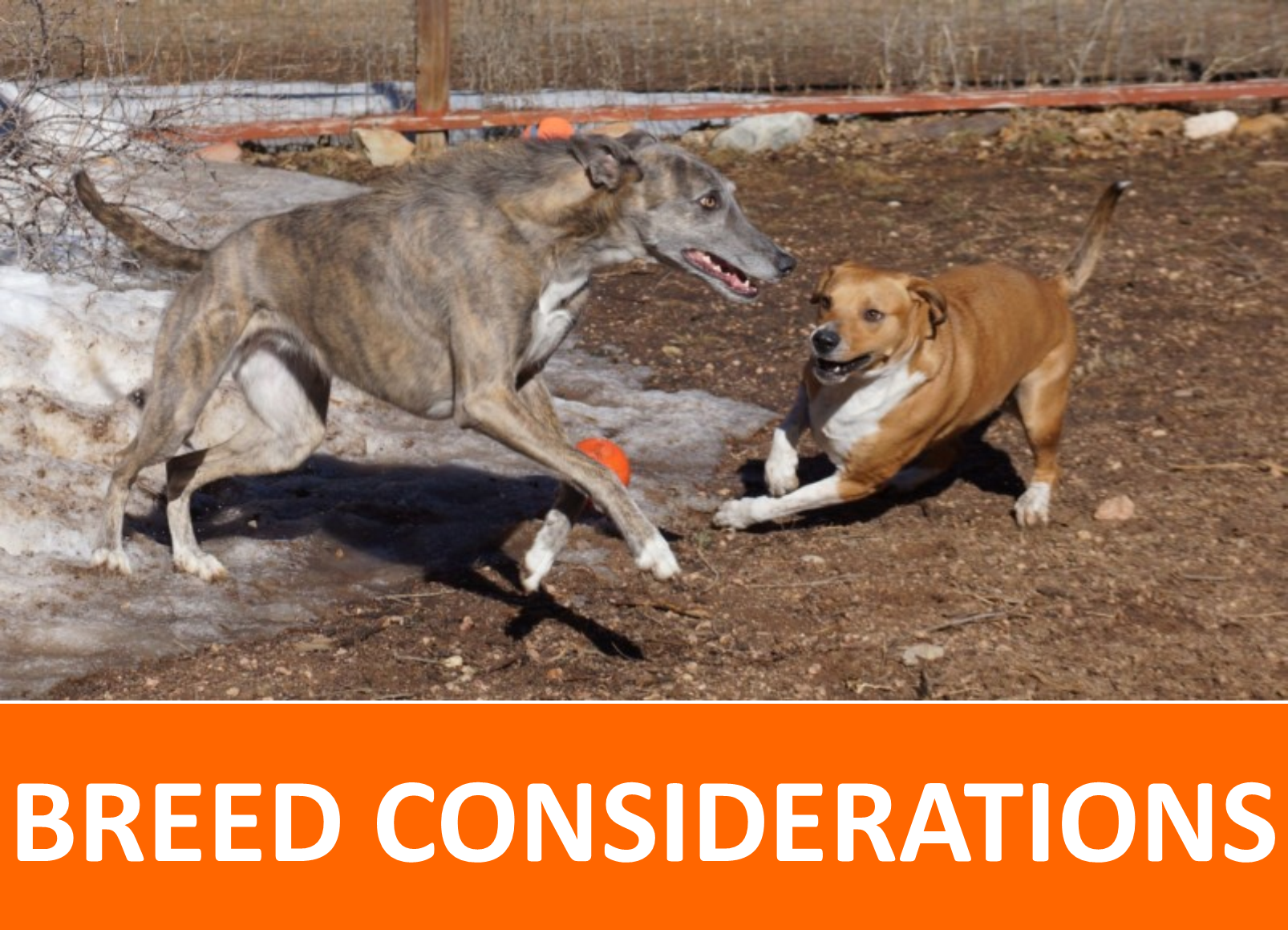
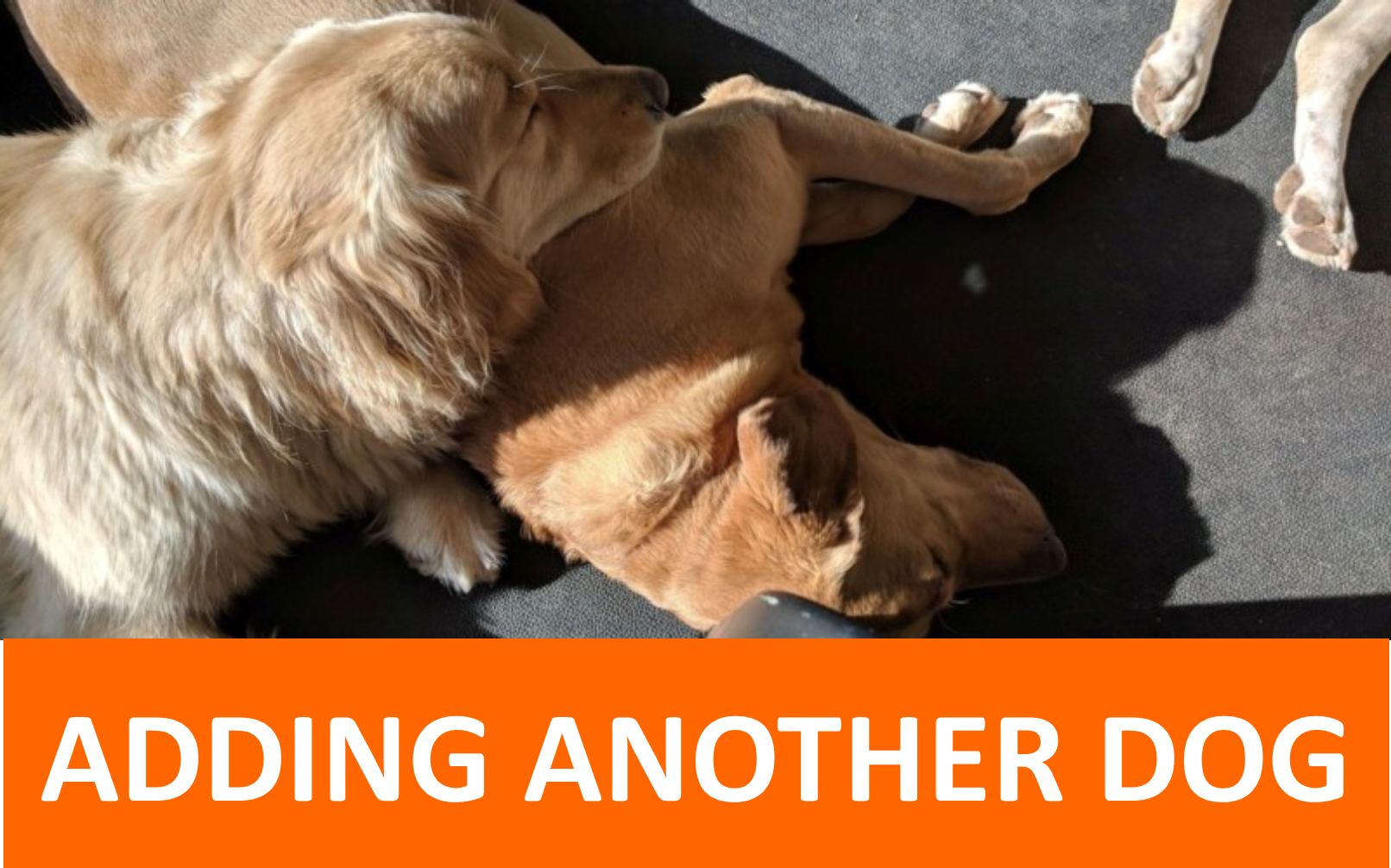

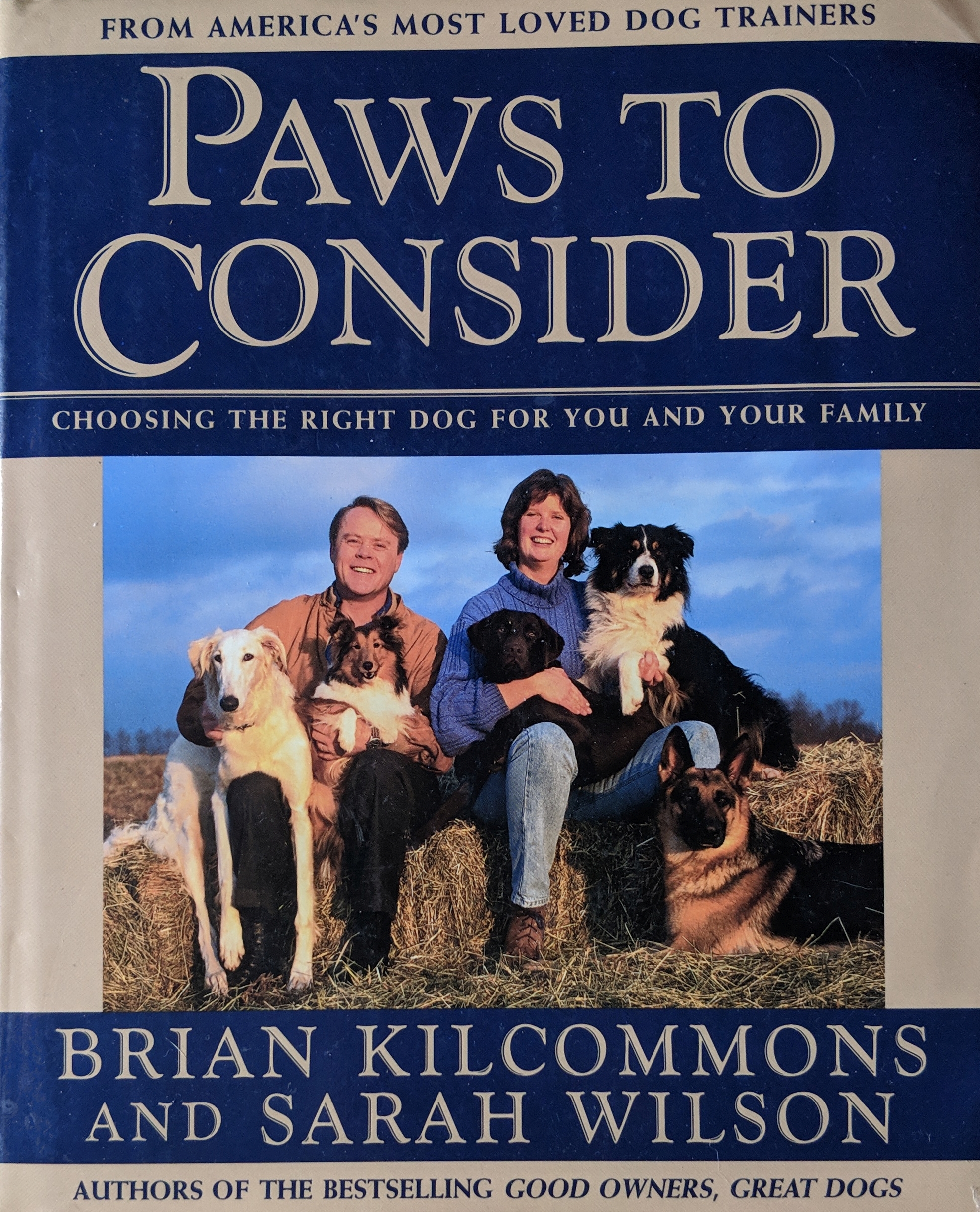

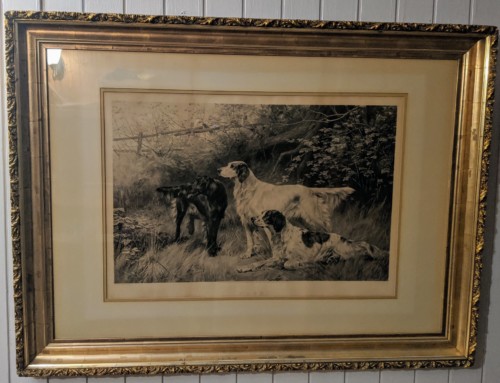
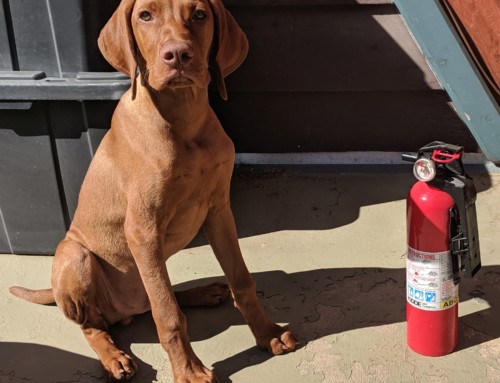

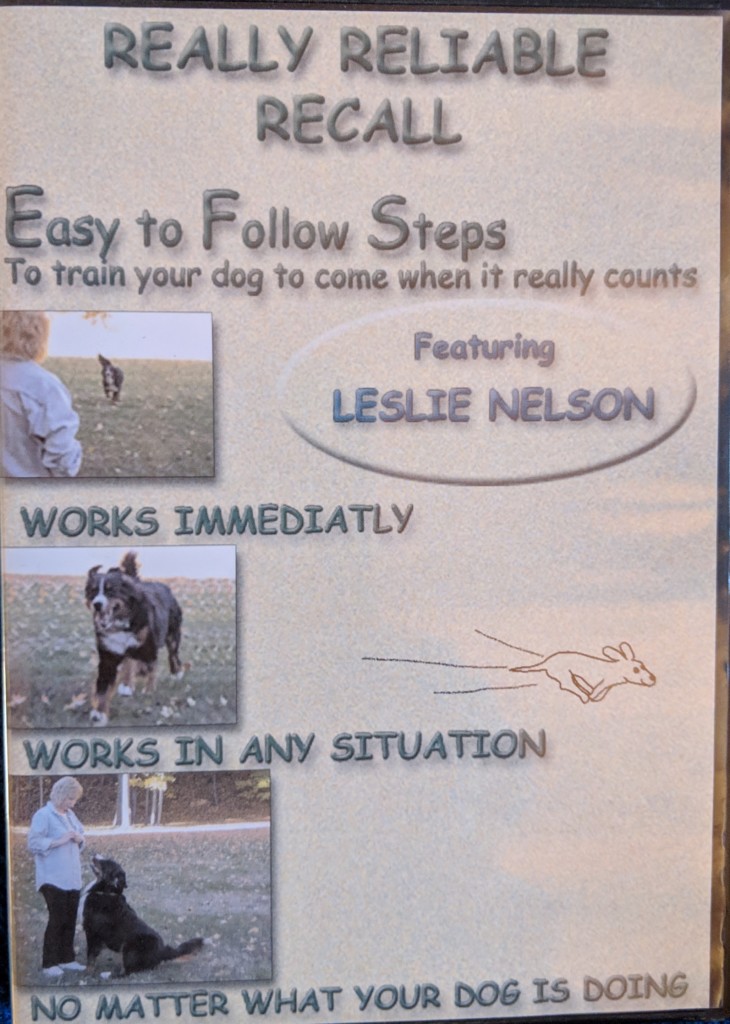


Leave A Comment